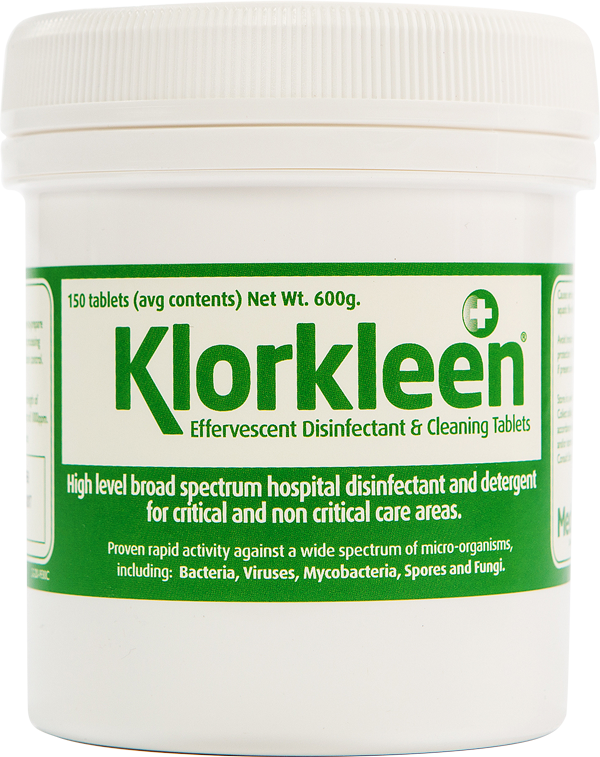Improving patient safety
Kersia effervescent disinfectant tablets are produced in a factory compliant with pharmaceutical industry standards. The tablets provide high-level, broad-spectrum disinfection for rapid removal of bacteria, mycobacteria, fungi, spores, viruses and biofilms.
In hospital settings and in healthcare in general, there is a crucial need for good hygiene and effective disinfection of at-risk areas and equipment, based on practical action. Reducing the risk of patient infection in hospitals and clinics is a constant concern for medical staff. Despite preventive measures, nosocomial diseases are responsible for thousands of deaths each year.
Conventional disinfection methods using bleach, hydrogen peroxide, quaternary ammonia or ultraviolet offer limited effectiveness against dry surface biofilms. These are a real hazard in hospitals as they are where most bacteria live. 93% of all hospital surfaces have been shown to be covered with biofilm; 50% of these contain multidrug-resistant organisms.
Kersia is the world leader in water disinfection tablets with Aquatabs®, providing millions of vulnerable people with access to safe drinking water (click here for more information). Kersia is also a well-known player in hospital hygiene, on the frontline in fighting hospital infections.

A first against biofilms
In 2018, Kersia’s Klorkleen (NaDCC) tablets for fighting biofilms in hospital settings were the first and only product to pass the US Environmental Protection Agency’s (EPA) new efficacy protocol, with an 8-log reduction in the number of pathogens tested in 4 minutes. The tablets are effective against pathogens such as Clostridium difficile spores, Norovirus, Candida auris, tuberculosis and carbapenem-resistant Enterobacteriaceae (CRE).
Kersia products, Klorsept and Klorkleen, are included in the EPA N list of products that meet EPA’s criteria for use against SARS-CoV-2.
Kersia disinfectant tablets are:
Simpler to use – Just add one tablet to a litre of water
More powerful than bleach, H2O2, Quats, ultraviolet light and PAA
Safer – Do not corrode surfaces or burn the skin
Smaller – Up to 20 times smaller to transport
Sustainable – Fully biodegradable
